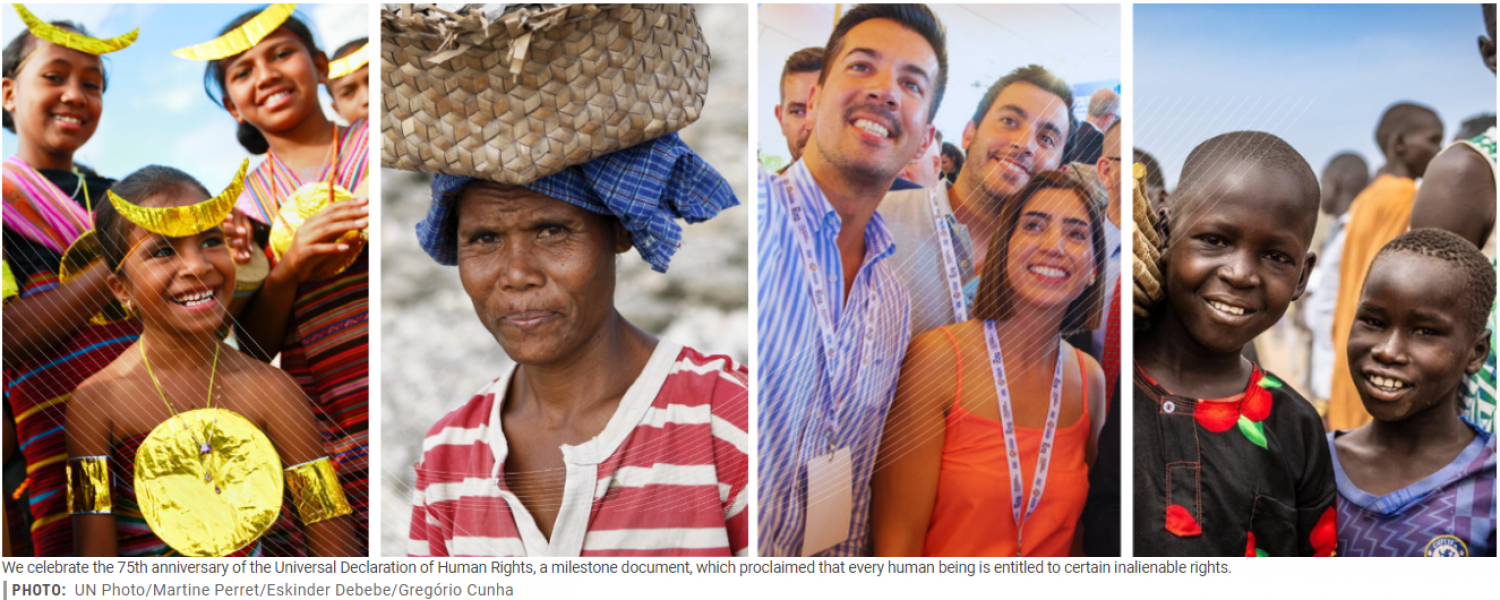
10 December 2023 marks the 75th anniversary of one of the world's most groundbreaking global pledges: the Universal Declaration of Human Rights (UDHR). This landmark document enshrines the inalienable rights that everyone is entitled to as a human being - regardless of race, colour, religion, sex, language, political or other opinion, national or social origin, property, birth or other status.
The Declaration was proclaimed by the United Nations General Assembly in Paris on 10 December 1948 and sets out, for the first time, fundamental human rights to be universally protected.
Available in more than 500 languages, it is the most translated document in the world.
A year-long initiative focusing on universality, progress and engagement, will culminate in a high-level event in December 2023, which will announce global pledges and ideas for a vision for the future of human rights.
(Taken from https://www.un.org/en/observances/human-rights-day).
The Lancet Global Health, Volume 11, September 2023
The Lancet Global Health, Volume 11, September 2023
Women's Studies International Forum, Volume 99, 1 July 2023
The Lancet Global Health, Volume 11, June 2023
The Lancet Planetary Health, Volume 7, May 2023
The Lancet Planetary Health, Volume 7, February 2023
Journal of Responsible Technology, Volume , 2023
eBioMedicine, Volume 76, February 2022
Lancet Regional Health - Americas, Volume 25, September 2023
The Lancet Global Health, Volume 11, September 2023
This Comment article supports SDG 3 and 10 by highlighting that additional calls to action to further safeguard the lives and welfare of LGBTQ+ people are urgently needed; unified commitments that reflect the core values of the Sustainable Development Goals and basic human rights are crucial for ensuring the welfare of LGBTQ+ populations globally.
Lancet Regional Health - Americas, Volume 22, June 2023
Green Blockchain Technology for Sustainable Smart Cities, 2023, Pages 199-215
Pandemic Risk, Response, and Resilience: COVID-19 Responses in Cities Around the World, 2022, Pages 207-217
Energy Democracies for Sustainable Futures, 2023, Pages 317-326
Energy Democracies for Sustainable Futures, 2023, Pages 225-232
Obstetrics and Gynecology Clinics of North America, Volume 49, Issue 4, 2022, Pages 809-821
Pediatric Clinics of North America, Volume 70, Issue 6, 2023, Pages 1087-1102
Encyclopedia of Forensic Sciences, Third Edition, Volume 2, 2023, Pages 482-492
International Encyclopedia of Education, Fourth Edition, 2023, Pages 53-64
International Encyclopedia of Education, Fourth Edition, 2023, Pages 574-585
Encyclopedia of Archaeology, Second Edition, Volume 1, 2024, Pages 535-538
